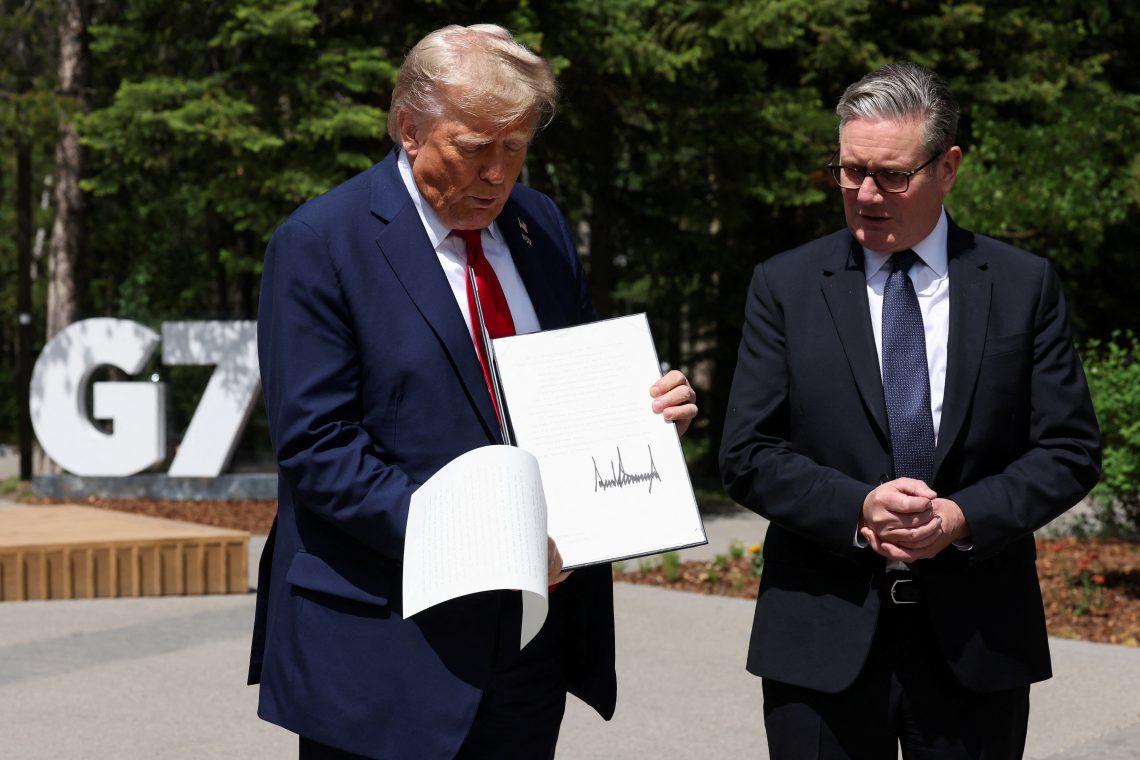Risky EU approach to tightening Russia sanctions
The European Union is seeking to make it more difficult to circumvent its sanctions regime. The 14th package of its sanctions against Russia, in force since June 25, 2024, is designed to increase liability risks for companies that have avoided the previous rounds. By the end of the year, the measures will apply to EU-established companies, banks and investors that have direct or indirect holdings in subsidiaries, joint ventures or portfolios located in non-EU countries that maintain business relations with Russia, therefore undermining the sanctions regime.
Historically, the EU largely avoided introducing extraterritoriality into the design of its various international sanction schemes, including in its previous, less-than-airtight rounds of Russian sanctions. In fact, Brussels opposed implementing extraterritorial sanctions in the past, asserting that any of its restrictions would only be applicable where a direct link to the EU existed.
The EU has also protested when other jurisdictions, mainly the United States, imposed extraterritorial measures and secondary sanctions. Brussels even prohibited sanctions compliance by EU companies when faced with overseas measures in U.S. sanctions on Cuba, Iran and Libya.
Since 2023, the EU has increasingly targeted third countries to fight emerging schemes circumventing the Russia sanctions regime.
By contrast, the U.S. has long employed an extraterritorial capacity in its sanctions policies. The U.S. Treasury’s Office of Foreign Assets Control imposed “secondary sanctions,” targeting countries without the need for any nexus between a third country and the U.S. In September 2022, the Treasury signaled its intention to broaden the application of extraterritoriality significantly in the enforcement of its sanctions against Russia, and it has done so on numerous occasions since then.
Following the U.S. example
Lately, the EU has begun to follow the U.S. lead on the matter. Since 2023, it has increasingly targeted third countries to fight emerging schemes circumventing the Russia sanctions regime.
For example, Brussels introduced a provision in its eighth sanctions package to blacklist individuals of any nationality who facilitated the evasion of sanction penalties. Package 11 went further, setting up a series of new powers adding third-country entities to the new sanctions lists. The package also employed a last-resort measure for cases when circumvention continued by adding third countries to the sanctions list.
While the EU now regards targeting third-country operators as crucial to its anti-circumvention efforts, such measures have led to sanctioning persons for operations not considered illegal in their domestic jurisdictions – with no connection to the EU.
The “No Russia” clause will take effect on December 26, 2024, and will also apply when the transfer of intellectual property rights relates to goods identified as being of dual civilian-military use.
Initially deploying a light-touch approach to sanctions evasion, the EU gradually expanded its use of the extraterritoriality approach. It has been broadly incorporated into the 14th sanctions package.
Fully embracing the controversial measure
The EU’s latest sanctions package is focused on tackling sanction-dodging in third countries and beefing up enforcement. EU parent companies are now legally required to exercise their “best efforts” to ensure that their non-EU subsidiaries, which they own or control, refrain from engaging in transactions that result in an outcome the sanctions were designed to prevent.
Accordingly, EU operators transferring industrial know-how to produce battlefield goods to third-country commercial counterparts will have to include contractual provisions to ensure that such know-how will not be used for goods diverted to Russia.
This “No Russia” clause will take effect on December 26, 2024, and will also apply when the transfer of intellectual property rights relates to goods identified as being of dual civilian-military use or, simply, advanced technology. The European Commission will decide whether non-EU subsidiaries should also apply the “No Russia” clause.
Financial system sanctions
The new EU sanctions ban the use of the System for Transfer of Financial Messages (SPFS), an electronic platform developed by the Central Bank of Russia that serves as a Russian analog to SWIFT (the leading financial system that enables the transfer of funds between banks and financial institutions worldwide). As of the third quarter of 2023, around 300 Russian banks and 23 foreign banks from various countries, including Kazakhstan and Switzerland, were connected to the new platform, designed to enhance Russia’s financial sovereignty and reduce reliance on Western financial institutions.
EU entities operating outside of Russia are prohibited from connecting to that system, or any equivalent, effective from June 25, 2024. These entities are also barred from making transactions with listed entities using the SPFS outside of Russia.
Energy and trade sanctions
The EU’s 14th round of sanctions prohibits the reexportation of Russian liquefied natural gas (LNG) within EU territory. The ban extends to technical and financial services facilitating LNG transshipments to third countries. The aim is to diminish Russia’s revenues from gas sales.
The EU has expanded its military end-user list to include 61 new entities (33 in third countries and 28 in Russia) alleged to have been involved in the circumvention of trade restrictions or the procurement of sensitive items (used in various sectors, such as drones), and in general support of Russia’s military operations.
Global South responses to EU extraterritoriality
After the initial waves of sanctions failed to sufficiently crimp Russia’s economy, the U.S., the EU and some other Western nations responded by turning to extraterritorial measures, often banning third-country usage of their respective currencies in cross-border transactions.
The freezes have undermined the credibility of the euro and the dollar as havens, raising implications for non-Western governments managing their financial reserves.
This outcome arose because China, India, Brazil, South Africa and other Global South countries continued to trade with Russia. Unexpectedly, many increased their respective bilateral trade with Moscow and expanded sanctions evasion across a range of economic sectors, including finance, energy and trade in strategic manufactured and high-tech goods.
Most developing world countries consider Russia’s invasion of Ukraine unlawful but have argued that the conflict ought to be contained with compromise and ceasefires rather than unilateral sanctions and weapons supplies to Ukraine. India’s external affairs minister, Subrahmanyam Jaishankar, conveyed these countries’ sentiment when he advised in 2022 that “Europe has to grow out of the mindset that Europe’s problems are the world’s problems, but that the world’s problems are not Europe’s problems.”
The freezing of Russian assets has been hailed in the West as a proper and unified response to Russia’s war. However, it sent a troubling message to many in the rest of the world. Global South governments now wonder if holding their overseas assets in euros and U.S. dollars is so smart, as they themselves could face similar actions in the future. The freezes have undermined the credibility of the euro and the dollar as havens, raising implications for non-Western governments managing their financial reserves.
In a striking example of currency nervousness, Algeria introduced a clause in its 2023 agreement for gas sales to European partners: It reserved the right to change the transaction currency on a half-year basis. Similar nervousness can be detected across the Global South, where countries increasingly use their own currencies, the Chinese yuan or other alternative financial instruments in trade. That slowly but surely undermines the global relevance of the leading Western currencies.
Scenarios
Most likely: EU doubles down on extraterritorial sanctions
The way the developments in Brussels are pointing today, the EU is about to implement secondary sanctions against third countries charged with weakening its steadily expanding sanctions regime.
While these measures run contrary to the traditional approach of EU jurisprudence in avoiding extraterritorial overreach, sanctions manipulation and avoidance by an increasing number of non-Western states appears to have persuaded Brussels that effective enforcement can only be achieved by targeting legal entities worldwide, possibly including governments. Hence, the move widens the EU’s existing, already significant extraterritorial powers.
As Russia’s economy continues to expand its bilateral trade in strategic sectors such as energy, mainly through partners in the non-Western world – China, India, Brazil and Turkey account for the bulk of such trade – the question arises: How far will the EU go in sanctioning entities in these countries? Their trading subjects most likely include large state-owned enterprises (common in the developing world) and large private companies critical to growth and social stability there.
The July 2024 visit of India’s Prime Minister Narendra Modi to Moscow, his first trip there since the Ukraine conflict broke out, has sent an ominous signal about the coming trouble. Delhi’s diplomatic gesture, following on the heels of Russian President Vladimir Putin’s state visit to Vietnam (another important developing country with which the EU hopes to forge close economic relations) shows how complex the EU’s task of enforcing its sanctions is going to be. Many Global South countries rely heavily on Moscow for energy and arms.
Less likely: The EU tamps down on extraterritorial sanctions
The EU has long maintained that extraterritorial sanctions violate the targeted countries’ territorial integrity and sovereignty – the same principles that Brussels raises regarding the need to reverse Russia’s occupation of parts of Ukraine and uphold Kyiv’s right to decide its membership of NATO. Ironically, the EU is now moving in disregard of these very same principles.
Therefore, from an international law perspective, the EU may, in the future, return to its previous legal position. This could even include the possibility of employing an instrument similar to a 1996 law, known as the Blocking Statute, applied by the EU to protect EU nationals and legal entities from the extraterritorial effects of U.S. sanctions against Cuba, Libya and Iran.
The EU’s turn away from extraterritoriality could stem from practical considerations. The European alliance lacks the financial and economic clout of the U.S. to compel non-EU entities to comply with its policies. The U.S. enforces its sanctions by leveraging the dollar as a powerful economic instrument, which the euro cannot replicate in terms of deterrent effect. As a result, the Europeans need to develop additional economic tools to create an effective bargaining chip. In the financial sector, their institutions lack the strength and global reach of their American counterparts.
However, the principal reason the EU may withdraw from extraterritorial sanctions is the prospect of retaliation from the affected countries. While the EU might successfully apply extraterritorial measures against smaller sanctions-evading economies, such as Armenia or perhaps even Kazakhstan, doing the same with hefty actors like China, India or NATO-member Turkey would be practically out of the question.
China, which has come under scrutiny over its substantive dual-use goods trade with Russia, has already warned Brussels: If China is sanctioned over that matter, Beijing would respond with countersanctions. In such an event, various EU member states that have significant economic interests with China, including Germany and France, would push back vigorously against extraterritorial sanctions.
This report was originally published here: https://www.gisreportsonline.com/r/eu-extraterritorial-sanctions-russia/
































